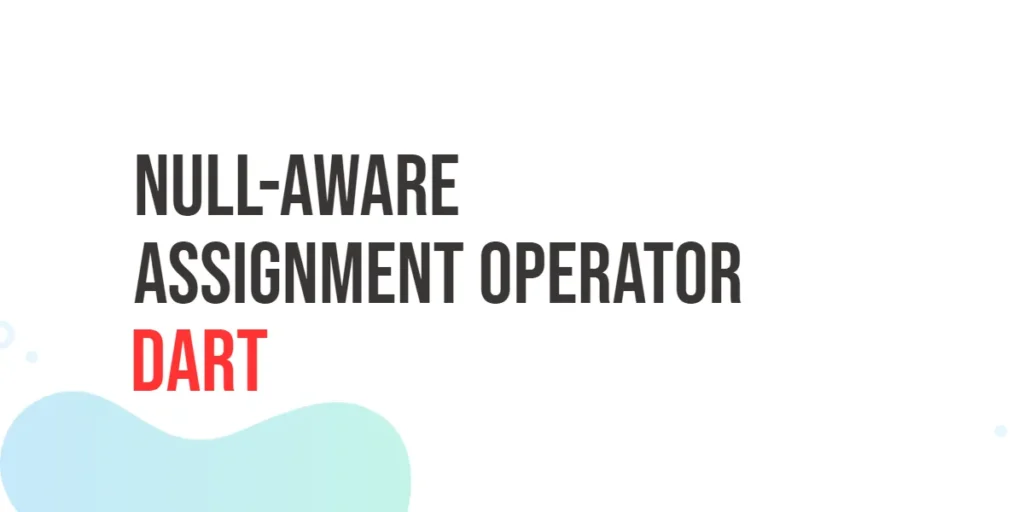Imagine a world where you never have to worry about null references crashing your Dart program. That’s the power of null safety, and the null-aware assignment operator (??=) plays a crucial role in achieving this dream. This operator might sound intimidating at first, but fear not! This article will be your friendly guide, breaking down its workings in simple terms, complete with engaging examples and clear explanations.

with hands-on learning.
get the skills and confidence to land your next move.
Understanding the Need for Null Safety
Before diving into the operator itself, let’s establish the context. In programming, variables can hold values, but sometimes, they might not have anything assigned to them, representing an absence of data. This “nothingness” is known as null. While useful in certain scenarios, unhandled null values can lead to runtime errors, causing your program to abruptly halt.
Dart, unlike some other languages, takes a proactive approach to null by introducing null safety. This means variables explicitly declare whether they can hold null values or not. This approach helps the compiler identify potential null issues early on, preventing unexpected crashes.
The Null-Aware Assignment Operator
Now, meet the star of the show: the null-aware assignment operator (??=). Imagine you have a variable that might be null, but you want to assign a value to it only if it’s currently null. This is where ??= comes in.
variable ??= value;This statement checks if variable is null. If it is, the value on the right (value) is assigned to variable. Otherwise, nothing happens, and the existing value in variable remains untouched.
main() {
// Declare name as nullable
String? name;
name ??= "DefaultName";
print(name); // Output: "DefaultName"
}In this example, if name is null, the value “DefaultName” is assigned to it. If name already has a value, nothing changes.
Chaining ??=
You can chain multiple ??= operators for complex scenarios:
int calculateAge(int yearOfBirth) => DateTime.now().year - yearOfBirth;
main() {
int yearOfBirth = 1992;
int? age;
age ??= 28; // Assign 28 if age is null
// Assign calculated age if age is still null
age ??= calculateAge(yearOfBirth);
print(age); // Output: 28 (if age was null) or calculated age
}This code first assigns 28 to age if it’s null. Then, it checks again and assigns the calculated age from calculateAge() if age is still null. This demonstrates how ??= can be chained for multi-step assignments.
Conclusion
The Dart null-aware assignment operator (??=) is a powerful and versatile tool that helps you write clean, concise, and null-safe code. By understanding its principles and various applications, you can confidently navigate the world of nullable variables in Dart, building robust and reliable applications. Remember, use it effectively, but don’t overuse it, and always keep null safety principles in mind for a smooth coding experience!







